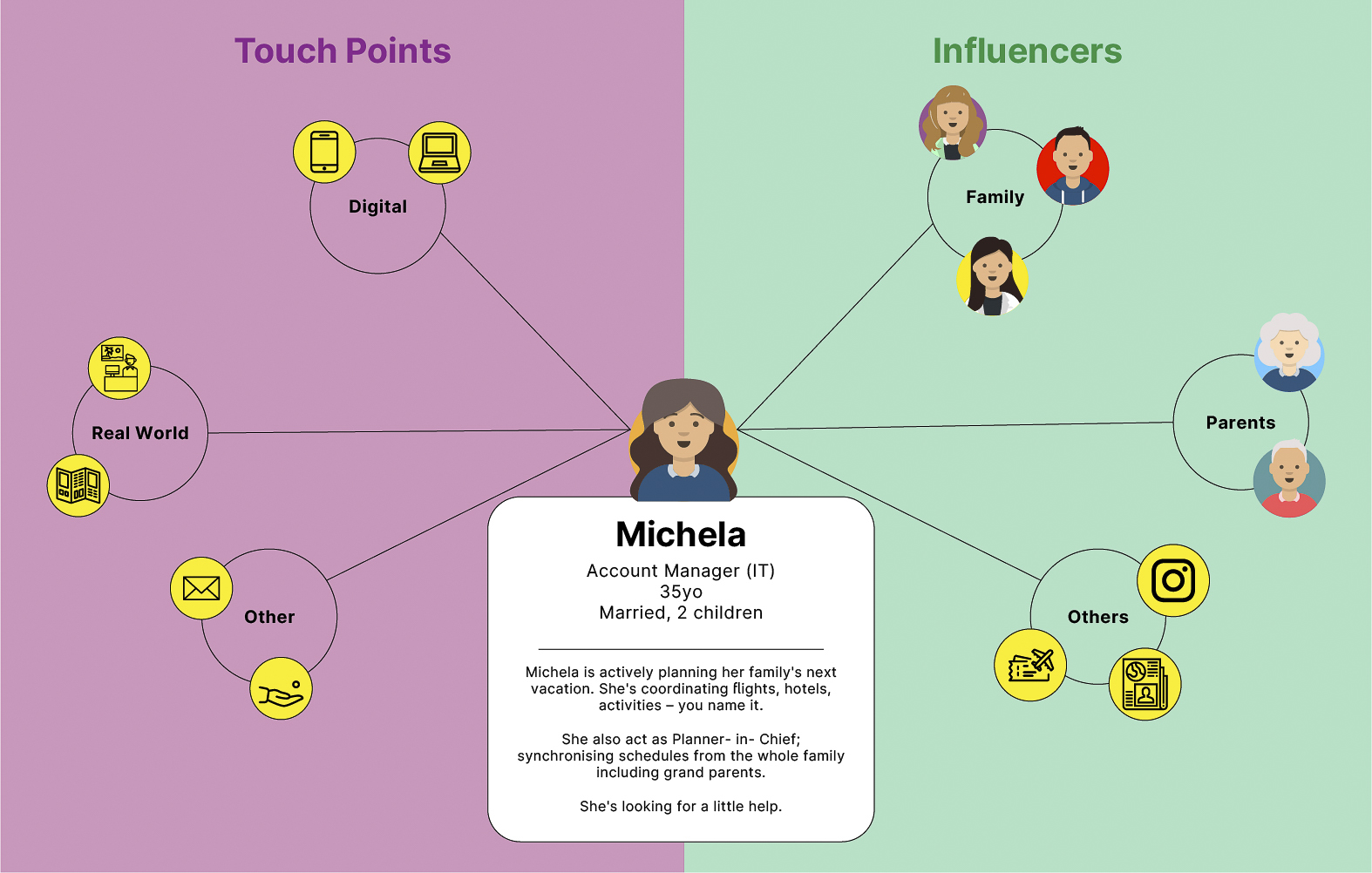In today’s world, traditional demographics are no longer enough to define consumers. Age, gender, income, and location once shaped marketing strategies, but these factors have lost their predictive power. Instead, modern consumers are fluid and dynamic, weaving together fragmented identities shaped by cultural shifts, digital interactions, and evolving personal values.
We are entering an era where consumer identity is no longer fixed. People are shaped in real-time by their environment—friends, online communities, ethical beliefs, and even emerging technologies. I call this the “sociona” effect—where individuals no longer fit into rigid categories but exist within a constantly shifting ecosystem of social interactions and contextual decision-making. Consumers today are experience-seekers, ethical shoppers, digital nomads, and brand skeptics—all at once.
For brands, this presents a massive challenge and an even bigger opportunity. How do you connect with consumers who resist labels, distrust corporate messaging, and expect brands to evolve alongside them?
I’m Chris, a consultant and facilitator specializing in innovation, brand strategy, and human-centered design. Over the years, I’ve worked with businesses, educators, and organizations to explore how brands can build deeper, more meaningful relationships with evolving audiences.
One of the most important shifts I’ve observed is the transformation of consumers from static personas into dynamic, socially-influenced identities. To stay relevant, brands must stop marketing to outdated stereotypes and start engaging with consumers in real, adaptive, and co-creative ways.
So, what does this mean for businesses today? Let’s dive in.
The New Rules of Engagement
To connect with postmodern consumers, brands must move beyond segmentation and embrace adaptive, experience-driven engagement. Here’s how:
- From Identity to Individuality: Instead of lumping people into broad categories, brands must focus on micro-moments—how a consumer feels, thinks, and acts in real time. AI-driven personalization, community-driven branding, and real-time content strategies can help brands engage fluid identities authentically (Forrester, 2024).
- Authenticity and Transparency Win: Postmodern consumers have a finely tuned radar for inauthenticity. They value transparency, ethical responsibility, and brands that engage in honest storytelling. Performative branding or greenwashing won’t cut it; genuine commitment to values does (Harvard Business Review, 2023). Patagonia, for example, thrives because its sustainability mission is embedded in its DNA, not just a marketing tactic (Patagonia Annual Report, 2023).
- Brand as a Platform, Not Just a Product: Today’s consumers are not passive recipients of marketing messages; they want to co-create, participate, and influence. Brands that position themselves as cultural platforms—Nike with athlete activism, Patagonia with environmental advocacy—build deeper loyalty (Econsultancy, 2024).
- Seamless Online-Offline Worlds: Postmodern consumers move fluidly between digital and physical spaces. Brands must create hybrid experiences that integrate both worlds, from immersive AR shopping to phygital (physical + digital) community-building strategies (World Economic Forum, 2024).
The Challenge for SMEs and NGOs
Many small and medium enterprises (SMEs) and NGOs struggle to connect with fluid consumer identities. The biggest challenge? A lack of direct connection with target audiences and the resources needed to analyze these shifting behaviors.
Without dedicated teams to understand what drives their consumers, these businesses miss the nuances of evolving consumer expectations. Many are still using outdated audience models, unaware that brand loyalty now depends on real-time, personalized engagement (McKinsey Consumer Insights, 2023).
The brands that embrace transparency, flexibility, and consumer participation will be the ones that survive.
From Consumers to Co-Creators: A Shift in Power
Modern consumers no longer just buy from brands—they actively shape them. This shift toward co-creation is transforming brand engagement.
For example, LEGO Ideas allows customers to submit and vote on product designs, creating a deep sense of ownership and community (Econsultancy, 2024). Brands that invite consumers to co-create products, experiences, and brand narratives build longer-lasting trust and advocacy.
If brands want to stay relevant, they must shift from dictating their story to co-creating it with their consumers.
The Role of Technology in Brand Engagement
The integration of AI, blockchain, and immersive digital experiences is transforming brand-consumer relationships.
- AI-powered personalization enhances engagement by predicting real-time consumer needs (Forrester, 2024).
- Phygital experiences allow consumers to interact with products before purchasing—think AR previews of furniture in your home or virtual try-on features for fashion brands (World Economic Forum, 2024).
- Blockchain for transparency is enabling brands to provide verifiable proof of ethical sourcing, sustainability efforts, and corporate responsibility (Harvard Business Review, 2024).
Technology isn’t about replacing human connection—it’s about enhancing the consumer experience in ways that are seamless, interactive, and transparent.
How Brands Can Adapt: Practical Strategies
To succeed in the postmodern consumer landscape, brands must take bold action:
- Move beyond traditional demographics—engage with fluid, real-time consumer identities.
- Authenticity matters more than ever—avoid greenwashing and integrate genuine brand values.
- Embrace consumer co-creation—involve customers in shaping products, services, and storytelling.
- Leverage AI and technology wisely—enhance personalization while maintaining human connection.
How I Apply This in My Consultancy Work
In my workshops, I don’t just teach strategies—I co-create them with my clients. From brand positioning sessions to innovation facilitation, I involve businesses early in the process, ensuring that their strategies reflect the evolving expectations of their consumers.
Because in today’s world, the most successful brands aren’t built in boardrooms—they’re built in collaboration with the people they serve.
Final Thoughts: The Future of Brand Engagement
The future belongs to brands that are adaptive, ethical, and participatory. Those that co-create, personalize, and build real relationships will thrive. Those that stick to outdated demographic models will become irrelevant.
So, here’s my challenge to you:
Is your brand evolving with your consumers, or are you still marketing to a world that no longer exists?
References
- Christian Vernaschi. (2025). The Sociona Ecosystem: Understanding Fluid Consumer Identities. Self-published framework.
- Econsultancy. (2024). Lego to BMW: How Brands Have Used Co-Creation to Earn Consumer Trust. Retrieved from https://econsultancy.com
- Forrester. (2024). Predictions 2024: Agencies and AI. Retrieved from https://www.forrester.com/blogs/predictions-2024-agencies-ai/
- Harvard Business Review. (2022). How Greenwashing Affects the Bottom Line. Retrieved from https://hbr.org/2022/07/how-greenwashing-affects-the-bottom-line
- McKinsey & Company. (2023). State of Consumer: Trends in Behavior and Spending Patterns. Retrieved from https://www.mckinsey.com/industries/consumer-packaged-goods/our-insights/state-of-consumer
- Nielsen. (2023). Need for Consistent Measurement: 2023 Nielsen Annual Marketing Report. Retrieved from https://www.nielsen.com/insights/2023/need-for-consistent-measurement-2023-nielsen-annual-marketing-report/
- Parguel, B., Benoît-Moreau, F., & Larceneux, F. (2011). The Impact of Sustainability Information on Consumer Decision-Making. ResearchGate. Retrieved from https://www.researchgate.net/publication/283162050_The_Impact_of_Sustainability_Information_on_Consumer_Decision_Making
- Patagonia. (2023). Annual Report: Environmental & Social Impact. Retrieved from https://www.patagonia.com
- Research Live. (2024). Harnessing Social Identity to Connect Brands to Consumers. Retrieved from https://www.research-live.com
- World Economic Forum. (2024). Phygital Experiences and the Future of Consumer Engagement. Retrieved from https://www.weforum.org



